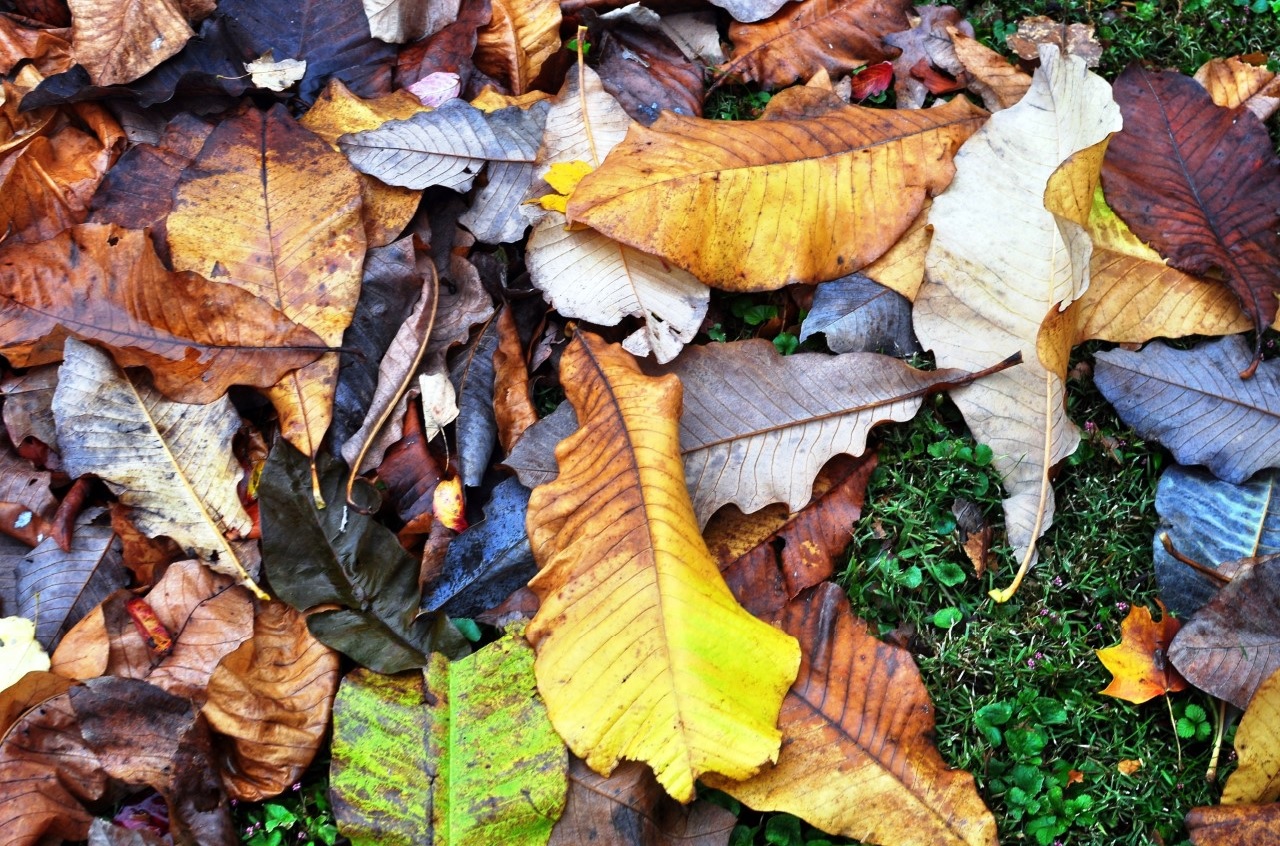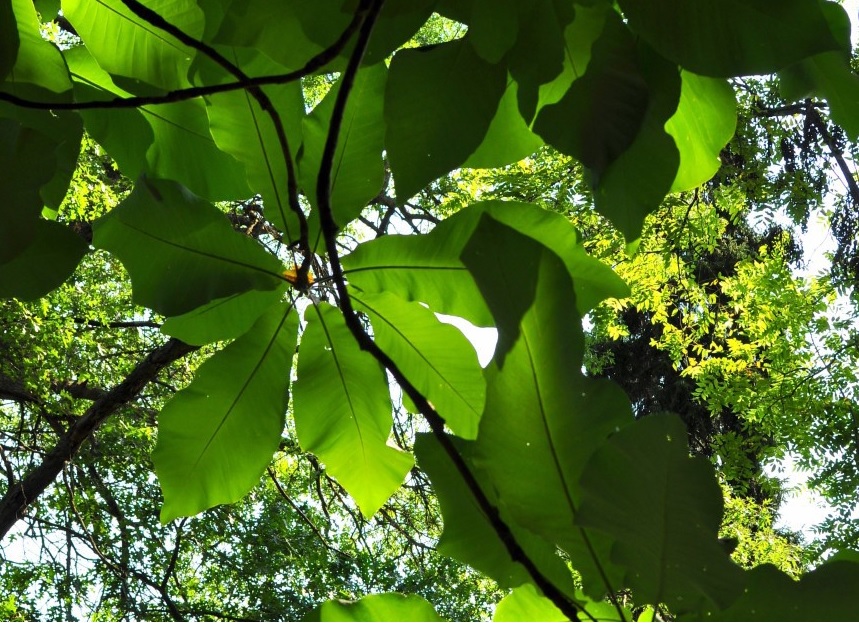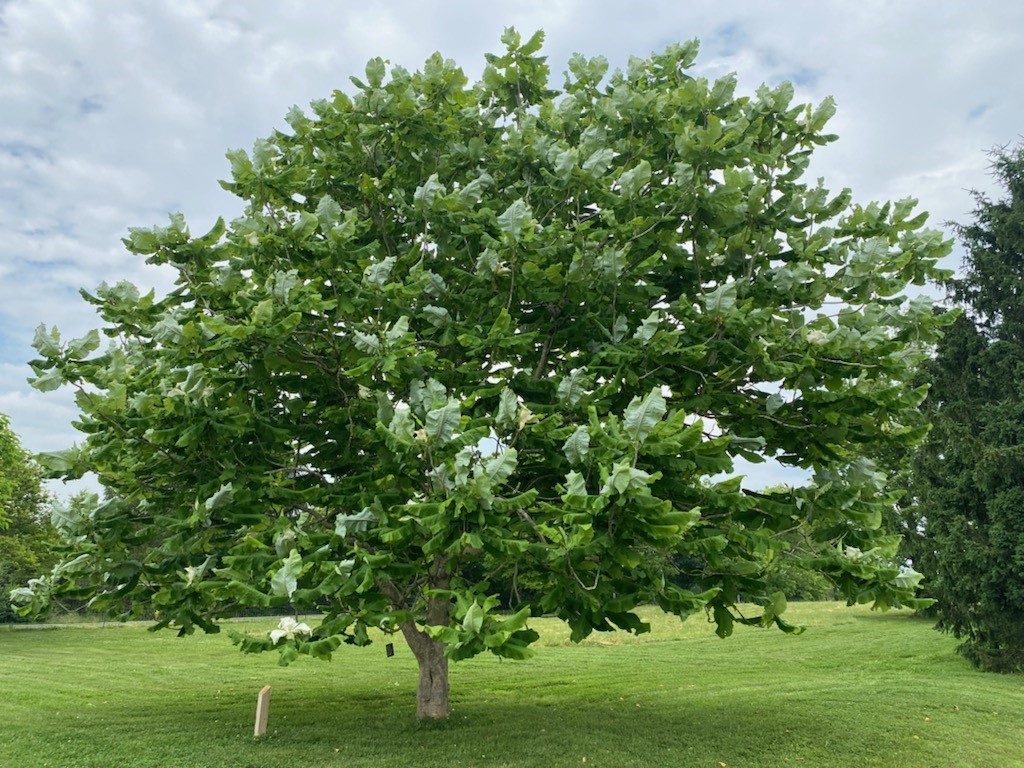
UT Gardens’ October 2021 Plant of the Month
Submitted by Alice Clark, Volunteer Coordinator and Horticulturist, UT Gardens, Knoxville
Something about big flowers and foliage is so enticing to me. The first time I saw Magnolia macrophylla was at a botanical garden in Kentucky, and I was totally taken aback by the gargantuan leaves and flower buds. I knew at once this was one of my favorite plants I have come across.
Commonly known as bigleaf magnolia, this is a deciduous, native tree that reaches 30-40 feet tall. It is commonly found in the eastern part of the state, along with western North Carolina, southeast Kentucky and parts of Alabama and Mississippi.
This underutilized tree works well in spaces that get full or part sun. Sporting the largest non-compound leaves in North America, mature leaves are green above and an attractive silvery-gray below and can be up to 36 inches long and 12 inches across. The large leaves can add a unique texture to your landscape!


M. macrophylla also has the largest flowers of any tree in North America. The cream-colored blooms are usually 8-10 inches across, beautifully fragrant and appear in late May. After flowering, the seed pods swell with seeds covered in a protective red seed coat. These three unique characteristics of the flowers and foliage make this species easy to identify in its native habitat as an understory tree.
Two cultivars of this plant are ‘Palmberg,’ which has even larger flowers than the species, and ‘Purple Spotted,’ a cultivar that has purple marking near the center of the flower. Though these cultivars are hard to find on the market, they will make a beautiful and interesting addition to any landscape.
The UT Gardens includes plant collections located in Knoxville, Crossville and Jackson. Designated as the official botanical garden for the State of Tennessee, the collections are part of the UT Institute of Agriculture. The Gardens’ mission is to foster appreciation, education and stewardship of plants through garden displays, educational programs and research trials. The Gardens are open during all seasons and free to the public. For more information, see the Gardens website: utia.tennessee.edu/state-botanical-garden.